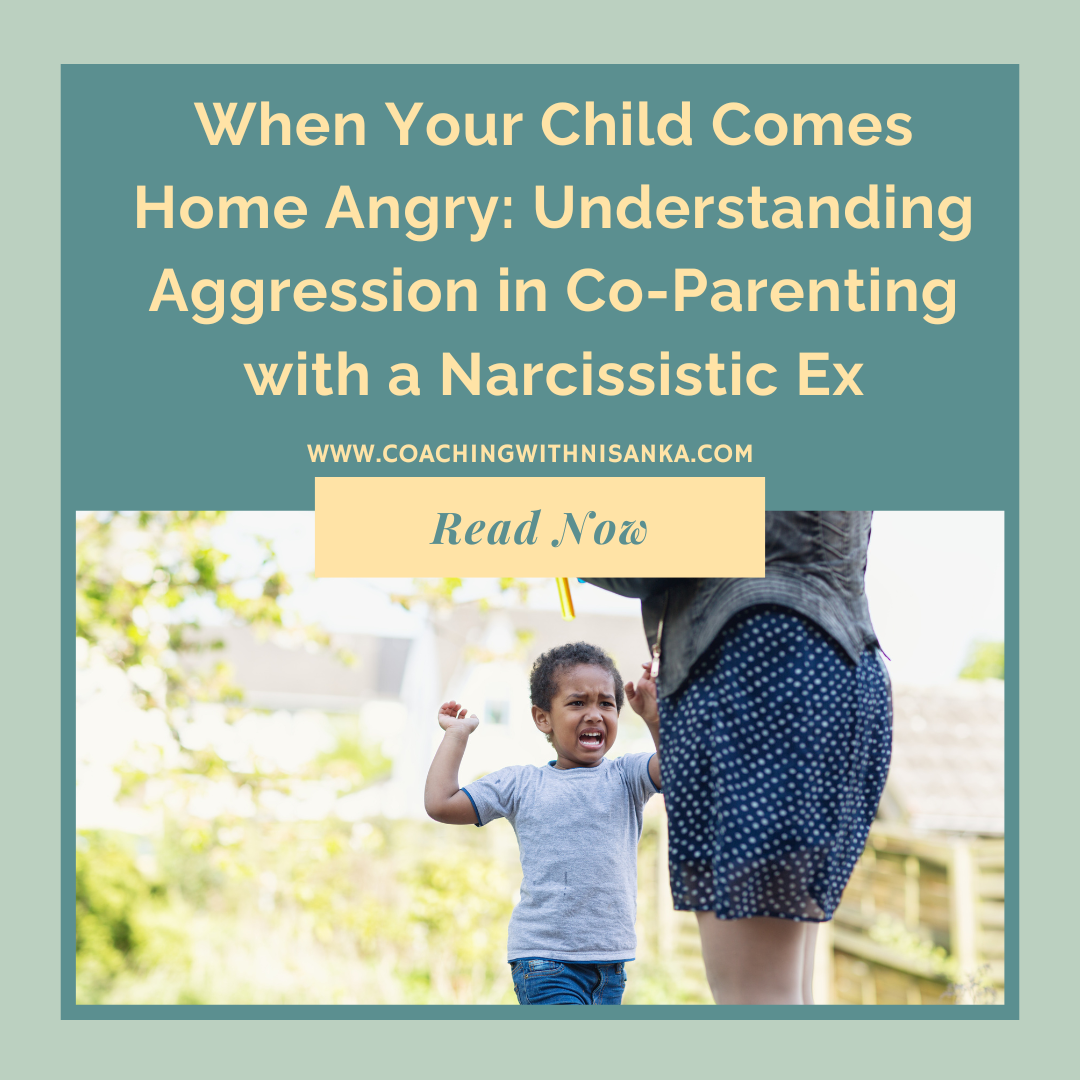When Your Child Comes Home Angry: Understanding Aggression in Co-Parenting with a Narcissistic Ex

There's nothing more terrifying than watching your children's relationship slip away from you. There's a constant fear of losing your connection and relationship with your children even when you raise them in a healthy environment. That's part of parenting. There's no escape from that.
But there's a double threat when we raise children with someone who maliciously fractures our relationship with them. It's terrifying! Sometimes, it's to the point where we walk on eggshells around our children, waiting for the shoe to drop.
Even then, our children come home from the other parent's house being very aggressive towards you. And you're feeling the grief, the shock, helplessness and the anger all at the same time. It's crippling.
That's when we're blindsided by our own patterns of reactions. And our reaction may or may not drive our children away from us.
Let's Understand Why Children Behave Aggressively
The Simple Stuff First
This could be as simple as hunger, too much sugar in their diet, tiredness, lack of sleep, or worry about school homework. Before we go deeper, check the basics. Sometimes a snack and a nap can work miracles.
Developmental Growing Pains
Children go through massive transitions during their teen years. It's a socially, emotionally, hormonally and psychologically challenging time for them. Their brains are literally rewiring themselves. Anger is often how this shows up because they don't have the emotional vocabulary yet to say "I'm overwhelmed by all these changes happening in my body and mind."
The Trauma Response That Breaks Our Hearts
Here's what's really happening: Children go into appeasing the abusive parent to preserve that relationship. It's a trauma response. Their little bodies go into a fawn response. Young children can't run away or fight their parent, so their options involve freeze or fawn.
When they come to your safer space, their nervous system begins to feel safer. But this is a process that children don't understand. Their anger might be their way of finally feeling safe enough to release all that stored tension and fear.
Think of it this way: They've been holding their breath all weekend, and now they can finally exhale. Sometimes that exhale comes out as a roar.
The Confusion That Lives in Their Bodies
Children feel confused about their emotions, what happens in their nervous system, and the conflicting messages they hear from each parent. This confusion leads to angry outbursts because they haven't developed the complex emotional language to express: "I feel torn between two worlds, and I don't know which version of myself I'm supposed to be."
The Fear That Drives Everything
There's nothing more terrifying to a child than feeling abandoned and rejected by their own parents. Whenever there are conflicts in children's lives, they often assume "something is wrong with me." This sends their nervous system into fight or flight, and this shows up as aggressive behavior.
They're not trying to hurt you. They're trying to survive the fear that they might lose you too.
When Their Boundaries Get Trampled
Every child begins to develop their own boundaries as individuals. They need parental mirroring to sustain these boundaries and go through the individuation process. When the narcissistic parent crosses these boundaries repeatedly, there's going to be natural defensive behavior.
Narcissistic parents don't respect children's boundaries or their need to grow into separate people. They want to keep the child as an extension of themselves. This creates so much anger in the child – anger they can't direct at the narcissistic parent, so it gets displaced onto you, the safer parent.
They Are Mirrors of Your Energy
Children pick up our energy like little sponges. If your energy is dysregulated and you're projecting your own fears, anger and anxieties through your body language, words, and energetic field, children feel that as rejection.
I'm not asking you to walk on eggshells around your children. My invitation is to regulate your nervous system first, then co-regulate with your children.
What I've Learned in 25+ Years of Working with Families
In my career, parents often come to me upset about their children's behavior. They want me to advise, coach, or even fix their children's behavior. When I wasn't trauma-aware, I sat children down and preached to them about their behavior.
But understanding trauma made me take a different approach. Now I reach out to parents first. Children's aggressive behaviors often stem from the lack of connection they feel with their parents. Parents who commit to examining and changing their own patterns often reconnect with their children. Those who deny their part in the relationship dynamic continue to cause more damage.
When you're raising children with a narcissistic partner, it's guaranteed that the narcissistic parent will NEVER reflect on their part in this damage. This leaves you carrying the heavy weight of re-establishing connection with your children.
It's not fair. I know. It's exhausting. I know that too.
Here's Your Opportunity
As I repeatedly say, this is an opportunity to learn to love deeper, open your heart wider, and connect from your heart energy.
When there's at least one parent who can do this work – the inner work, the healing work, the conscious parenting work – children not only survive, they thrive.
Be that parent. Because you already know the other parent won't be.
And remember: Your children's anger isn't about you. It's about their pain, their confusion, their fear. When you can hold space for that without taking it personally, you become their safe harbor in the storm.
You've got this.
One regulated breath,
one conscious response,
one moment of connection at a time.
